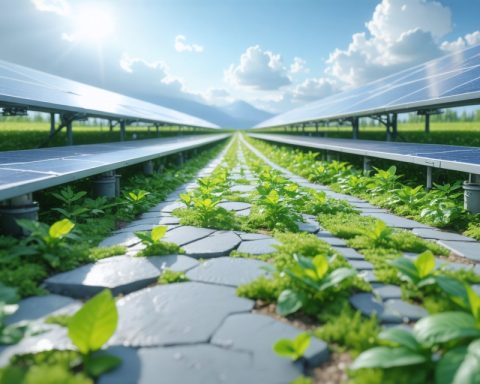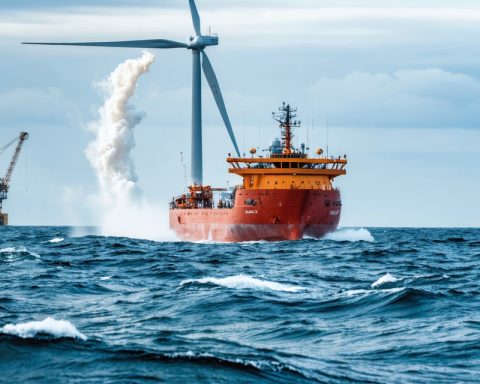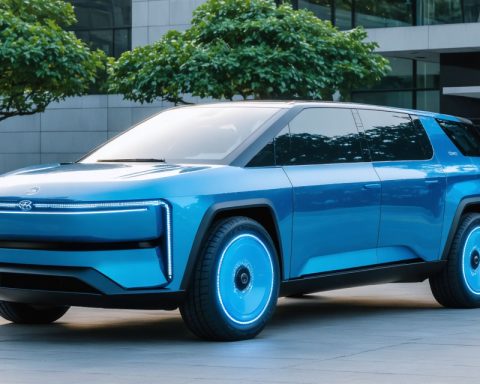In a significant step toward eco-friendly technology, Keppel is making strides with its hydrogen-powered data center initiative in Singapore. Partnering with Australia-based Woodside, Keppel has finalized an offtake term sheet for the supply of hydrogen. Although the journey began with a Heads of Agreement (HoA) in April 2023, this recent development solidifies their collaboration.
Revolutionizing Data Centers
Keppel is envisioning a future where data centers are powered by sustainable energy sources. By 2030, the plan entails acquiring around 1,000 tonnes of liquid hydrogen per day, showcasing Keppel’s commitment to this green tech revolution. This power shift aims to significantly cut carbon emissions, setting a precedent for global data centers.
Milestones and Environmental Impact
The partnership is moving towards signing a definitive offtake agreement, ensuring a steady supply of liquid hydrogen to Keppel. This development is a crucial milestone as it paves the way for cleaner energy solutions in Singapore’s tech infrastructure. The environmentally conscious move is expected to inspire a ripple effect, propelling other nations to evaluate their current energy consumptions and embrace greener alternatives.
Future Implications
As the demand for data storage increases with technological advancements, Keppel’s initiative demonstrates a forward-thinking approach that balances growth with environmental stewardship. With strategic partnerships like this, Singapore is charting a path toward a sustainable, high-tech future.
Readers looking for more information are encouraged to look at other articles on innovative energy solutions in technology sectors.
How Hydrogen Transformation Is Shaping Global Tech Landscapes
Discover the Hydrogen Shift Hermetic to Singapore
While Keppel’s groundbreaking hydrogen-powered data center project takes center stage in Singapore, a global discourse unfolds around the intriguing nuances and ripple effects of this initiative. Hydrogen, often viewed as a futuristic energy beacon, clashes with existing power architectures, creating both exciting opportunities and notable challenges worldwide.
Why Is Hydrogen Gaining Traction Globally?
Beyond the environmental appeal, hydrogen boasts a high energy density, making it an attractive option for industries grappling with escalating energy demands. Countries such as Japan and Germany are heavily investing in hydrogen infrastructure, betting on its potential to become a cornerstone of the energy sector. Could hydrogen truly be the game-changer for the world’s energy woes?
While promising, hydrogen production remains costly and, in some cases, energy-intensive. As debates heat up over the “greenwashing” of hydrogen – where energy used to produce hydrogen might still rely on fossil fuels – skeptics question if the environmental benefits can surpass the costs.
Unexpected Winners and Losers
This hydrogen shift could redefine economic fortunes worldwide. Countries rich in renewable resources could emerge as hydrogen producers, fundamentally altering energy trade dynamics. On the flip side, countries heavily investing in traditional fossil fuels may find themselves facing substantial infrastructural overhauls or risk becoming obsolete.
Communities are already witnessing tangible impacts. Renewable energy jobs, often centered around solar panels and wind farms, are expanding to include hydrogen technologies. This transition, however, isn’t without its socio-economic challenges. Industries anchored in conventional energy sources may experience job disruptions, underscoring the need for robust transition plans.
Inspiring Smarter City Strategies
For nations like Singapore, Keppel’s initiative is more than an environmental badge; it’s a blueprint for intelligent urban planning. Cities investing in hydrogen infrastructure may unlock a spectrum of benefits — decreased pollution, enhanced energy independence, and resilient power grids. But this potential hinges on technological advancements and regulatory frameworks keeping pace.
Are Other Nations Ready to Follow Suit?
As Singapore steps into the hydrogen arena, the world watches. Can developing regions chart similar paths, considering the infrastructure and cost hurdles? The answer lies partly in international collaborations aimed at knowledge-sharing and technological assistances, rendering hydrogen not just an elite venture but a global norm.
The conversation extends to issues of policy and innovation. As hydrogen technology matures, regulations concerning safety, logistics, and environmental impact will necessitate ongoing refinement, sparking debates among policymakers, scientists, and industry leaders alike.
For those interested in diving deeper into the future of energy, hydropower advancements, and sustainable technology, consider exploring the latest from organizations like International Energy Agency and World Energy Council, where informative insights shed light on global trends.














